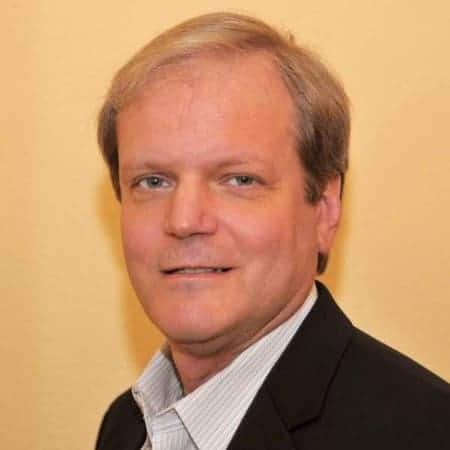LF Public Health’s mission to use open source software to help public health authorities (PHAs) around the world combat COVID-19 and future epidemics. Host your project with LFPH to benefit from the support and services of the LFPH ecosystem.
What does it mean to host a project?
Hosting a project with the Linux Foundation follows open governance, which means that there is no one company or individual in control of a project. When the maintainers of an open source project decide to host it at the Linux Foundation, they specifically transfer ownership of the trademark for their project to the Linux Foundation. They don’t transfer the copyright, however, since usage is already available to other users under the open source license.
Note that LFPH will only be hosting the upstream code. Each PHA may use that upstream to create its own custom implementation.
Why you should host your project with LFPH
LFPH provides the following services:
- A neutral home that increases adoption and contributions.
- Deep engagement with the PHA community to enable collaboration on urgent public health issues.
- Full-time press and analyst relations teams.
- Tens of thousands of dollars per year in documentation, security audits, case studies, and other support services.
- Crowdfunding and expense reimbursement tools with all the necessary accounting built-in.
- Ability to keep your maintainers and define your own governance, as long as it’s neutral.
- A full-time staff eager to assist.
- A world-class events team (virtual until it’s safe to hold in-person events again), able to run events around the world from 12 to 12,000 attendees.
The project application process
All projects follow a project progression set forth by the Technical Advisory Council (TAC).
- The TAC is comprised of experienced open source professionals to advise projects on open source best practice.
- Every accepted project gets a TAC Sponsor to coach them and help them grow.
- Projects get designated as Stage 1, 2, or 3, which defines what level of support they get from LFPH.
- Projects are required to present their proposal at a TAC meeting.
- The TAC meets every other Thursday and you can view upcoming meetings on our calendar.
- Join the #tac channel on Slack to get involved and learn more.
The Linux Foundation is the leading commons for community assets
- The Linux Foundation (LF) is a recognized and respected brand and can activate communications across tech, business, and social media channels.
- The LF is the largest open source foundation, providing management of community assets for over 400 projects:
- Over 3,400 source code repositories.
- Over 700 trademark registrations and applications, plus hundreds of unregistered marks.
- Over 700 project domains and DNS records.
- Over 12,000 Contributor License Agreements signed for project communities that decide to require one.
- The LF offers neutral sponsorship for managing fundraising.
- Over 1,600 unique member company relationships.
- Our communities raised over $100 million in 2019 via 6,500+ invoices.
- Our communities spent funds in 180,000+ separate transactions in 2019.
- The LF reports its audited financials to its board.
We build ecosystems around open source projects
- The LF has repeatedly shown its ability to build diverse ecosystems around open source projects incorporating developers, end users, tech giants, consulting companies, and startups.
- The LF hosts Let’s Encrypt, which provides the majority of the world’s https certificates, and demonstrates our track record of helping to build sustainable, privacy-focused initiatives.
- The LF has a strong history of fostering a rich environment of downstream commercial and volunteer implementations. There are hundreds of independent Linux distributions.
- There are over 100 Certified Kubernetes implementations, each of which has passed a comprehensive conformance test suite.
- CNCF has achieved unprecedented success in helping to grow awareness and adoption of Kubernetes, as demonstrated by Google Trends and KubeCon attendance.
- LF CommunityBridge offers paid internships with experienced mentors to increase the number and diversity of contributors.
Building large, sustainable ecosystems requires collective resources
Events
We gathered over 45,000 attendees from over 12,000 organizations across 113 countries in 2019.
Legal
We manage IP for the world’s most important tech and have one of the world’s top open source legal teams in house.
Training
We have trained millions of students through free and paid online training, online skills certification, and on-site e-learning.
Certification
We have designed and implemented both software and hardware testing and certification programs.
Developer Marketing
We have the largest share of voice of any open source foundation and a proven method to build large scale developer programs.
Developer Operations
We host the infrastructure that develops the world’s largest software communities and provide release management, IT ops, and support.
Application Security
In addition to massive peer review, our projects are regularly audited and pen tested. We offer bug bounties, dependency analysis, and code scanning.
The Linux Foundation serves as a nonprofit home
The LF has invoicing relationships with its 2,000 members, representing nearly every significant tech company, hundreds of startups, and many government organizations. We have strong relationships with all of the public cloud, mobile phone, and telecom organizations. For example, CNCF currently administers $9M in Google Cloud credits and $200k from AWS for our hosted projects.
The mission of the LF, a 501(c)(6) nonprofit, is to support the creation of sustainable open source ecosystems and public health is a natural next focus.
The LF can quickly receive and distribute funding. The LF fee for fiscal sponsorship services, which includes audited financials, is 9% of the first million dollars per year and 6% of additional funds.

“We’ve been one of the bedrock members of the Linux Foundation since its inception. We have a long history of doing open source projects throughout many communities. (But) there are things we couldn’t do before that we can now do, working in partnership with The Linux Foundation. If we were to take a project, open source it ourselves, and expect people to come to that project, that’s a very difficult path. But when you do it in partnership with The Linux Foundation, that path gets smoothed.”
– Todd Moore, VP of Open Technology, IBM
Host your project with LFPH
Join the growing roster of LFPH-hosted projects and take advantage of our resources and emerging community.
